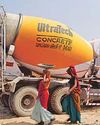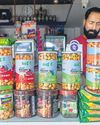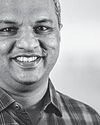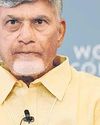At an event to commemorate 50 years of the National Sample Survey (NSS) in 2001, the then prime minister Atal Bihari Vajpayee noted that these surveys had contributed "invaluable raw material" to India's development plans, even though their contribution was often "unseen and unhonoured." "It is not often recognized that behind every piece of statistical information lies the dedicated work of hundreds of NSS investigators who have conducted painstaking surveys and interviews, often in remote areas," he said.
The 1999-2000 NSS consumption expenditure survey suggested that poverty had declined sharply compared to the mid-90s, Vajpayee pointed out. Had any politician made this claim, it would have been questioned, he said. But nobody could question the authenticity of the NSS survey, he added. "Governments come and go, but an autonomous organization like yours functions without being affected by political and governmental changes," said Vajpayee.
While Vajpayee was right about the value of NSS data, he picked the wrong example to highlight his point. The 1999-2000 consumption data turned out to be extremely contentious. NSS had faced criticism in the 1990s for failing to capture the country's changing consumption trends. In response, the NSS team ran a series of trials to modify its questionnaires. Even before the experiments could reach their logical end, the 1999-2000 round questionnaires were revised. The hurried revisions led to a flawed survey. Eventually, that round was deemed incomparable with other NSS rounds and later excluded from the Planning Commission's official poverty estimates.
هذه القصة مأخوذة من طبعة January 09, 2025 من Mint Mumbai.
ابدأ النسخة التجريبية المجانية من Magzter GOLD لمدة 7 أيام للوصول إلى آلاف القصص المتميزة المنسقة وأكثر من 9,000 مجلة وصحيفة.
بالفعل مشترك ? تسجيل الدخول
هذه القصة مأخوذة من طبعة January 09, 2025 من Mint Mumbai.
ابدأ النسخة التجريبية المجانية من Magzter GOLD لمدة 7 أيام للوصول إلى آلاف القصص المتميزة المنسقة وأكثر من 9,000 مجلة وصحيفة.
بالفعل مشترك? تسجيل الدخول

Insurance merger on hold, govt may pick one for sale
The Centre may drop its plan to merge three general insurers and instead pick one of them for privatization this fiscal year, two people aware of the development said.

Ireda Plans to Raise ₹5,000 Cr Via QIP
Indian Renewable Energy Development Agency (Ireda) on Thursday said its board has approved a plan to raise up to ₹5,000 crore fund through the qualified institutions placement (QIP) route.

Jashvik to pick up Smart Vision stake
Private equity (PE) firm Jashvik Capital Advisory LLP is acquiring a majority stake in Hyderabad-based eye care hospital chain Smart Vision Eye Specialities Pvt Ltd, said a person close to the deal.
Nominee Laws at Crossroads: From Trustee to Ownership, A Case for Reforms
The notion of a nominee being a mere trustee complicates the case for asset succession

Cheer for UltraTech as Q3 margin hit less than feared
The heightened competition in India's cement sector continues to take its toll on cement makers.

Inside the Seismic Shift in the Namkeen World
Health is wealth, so many brands are coming up with all kinds of products to reshape the way Indians snack
Adani Infra seeks CCI clearance
Adani Infra has sought approval from fair trade regulator Competition Commission of India (CCI) for acquiring a majority stake in PSP Projects Ltd.

A 'Little Prince' and 8 billion gardeners to our rescue
Have you ever looked at your house and thought, \"This place needs a complete makeover?\" You know the drill—pack your bags, move to a hotel, let the professionals work their magic, and return to your freshly renovated paradise.

India will clock fastest growth rate: Andhra CM Naidu at Davos
Andhra Pradesh chief minister N. Chandrababu Naidu has said that India's golden era has started and the country will clock the fastest growth rate.

American employees have lost their labour market leverage
Their pandemic gains are over as the power balance tilts away